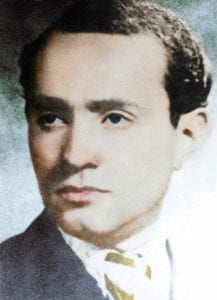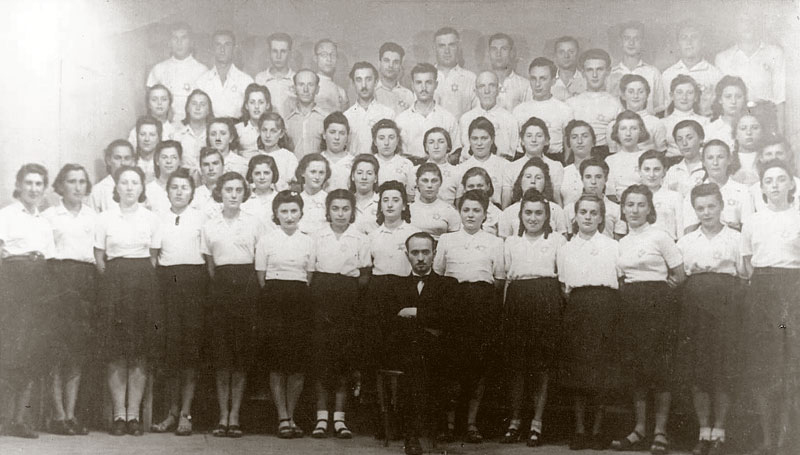Posted March 25, 2019
Reconstructing the life and music of a composer who reassembled an orchestra during the Holocaust.

Wolf Durmashkin was the youngest conductor of the Vilna Symphony Orchestra prior to World War II. When his family was thrown into the Vilna Ghetto in 1941, Wolf received a dispensation to continue his work there but was forced to return to captivity nightly. As part of an effort to keep hope and dignity alive for the people of the Vilna Ghetto, Durmashkin and a few musicians started the Ghetto Orchestra by gradually smuggling in every instrument — including a piano, which they had to dismantle and reassemble piece-by-piece.
Sent to Klooga Concentration Camp in 1943, Wolf was killed just hours before its liberation, his music nearly lost to the ashes of the Shoah until the U.S. Holocaust Museum in D.C. made a remarkable discovery last year.
“Stay Silent,” a haunting melody of resistance composed by Durmashkin in Klooga had been recovered in a book, left by a survivor who credited the music as the mantra that kept them alive. Now, musicians globally are breathing new life into the piece as an anthem for activism.
April 20, the Denver Philharmonic Orchestra — with guest conductor Mark Mast and featuring the Bavarian Philharmonic Chorus — will present the U.S. premiere of a newly revived version of the piece, aptly renamed “Won’t Be Silent,” expanded with new music inspired by the original: a classical interlude created by Tobias Forster and new lyrics from award-winning songwriter/musician Kara DioGuardi (“American Idol”).
